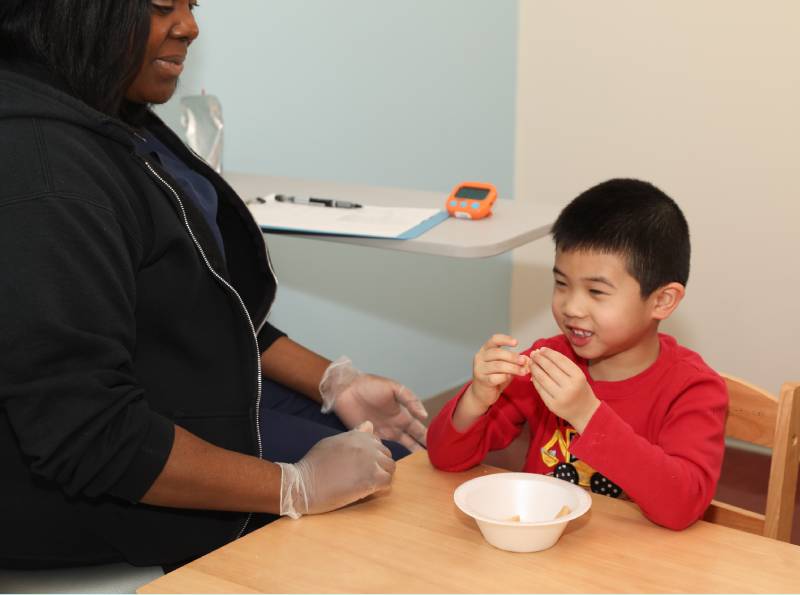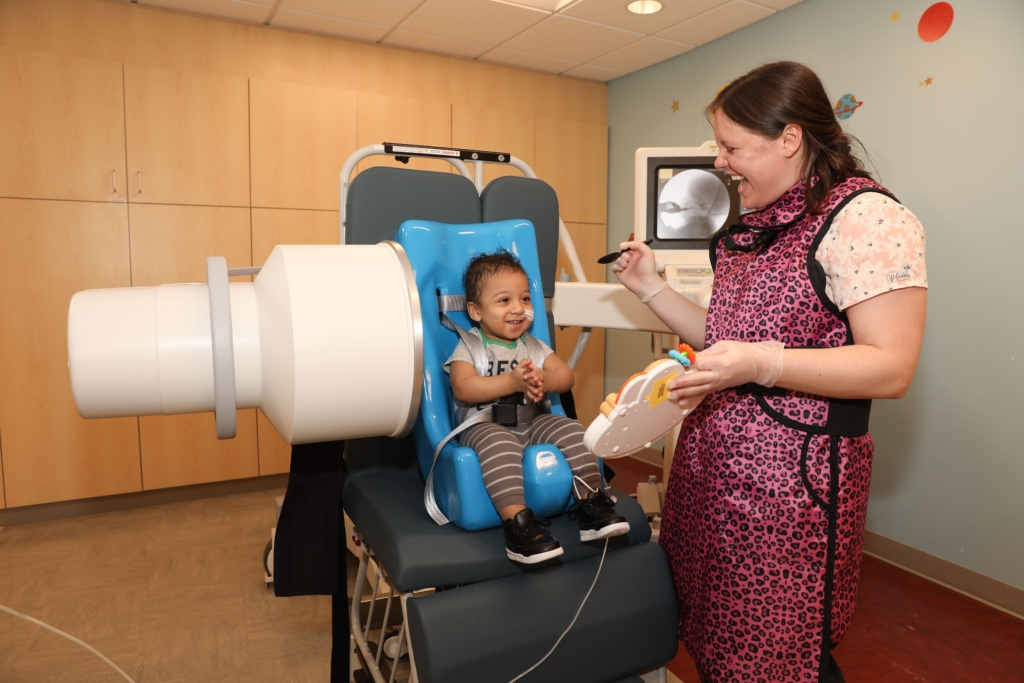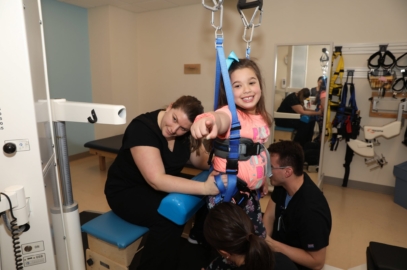July 24, 2019
Pediatric Feeding Disorders: When It’s More Than Just Being “a Picky Eater”

Most children are “picky eaters” sometimes. A picky eater might refuse everything on the menu or dawdle at mealtime. He may demand favorite foods and tantrum at everything else. Or he might accept only foods that look, taste or feel a certain way. Despite this, picky eaters usually still eat well enough to meet their nutritional needs. However, when “picky eating” persists, children are at risk for a pediatric feeding disorder. This complex condition can impact your child’s health and development. It can also contribute to stress in the family and problems at school. Recognizing and treating pediatric feeding disorder can ensure your child’s growth and development, reduce family stress, and improve behavior.
What Is Pediatric Feeding Disorder?
Pediatric feeding disorders affect more than 2.3 million children under the age of 5. Roughly 25 percent of all children have some form of a feeding disorder. It is more common among kids with medical conditions and disabilities. A feeding disorder is diagnosed when a child will eat only foods with certain textures or tastes and avoids other foods. Not eating an adequate diet can impair development, stunt growth, and cause a variety of medical problems relating to malnutrition. Children with feeding disorders may lose weight rapidly, appear tired, or struggle to learn or behave appropriately. They might cry, vomit, or gag around food.
What Are the Contributing Factors?
Common contributing factors of pediatric feeding disorders include:
- Anxiety and ADHD (attention deficit hyperactivity disorder)
- Child temperament and behavior
- Slow emptying of the stomach
- Low or high muscle tone
- Autism spectrum disorders
- Developmental delays
- Sensory difficulties
- Chronic health issues
- Parental anxiety
- Negative past food experiences
- Allergies and acid reflux
- Dental or orthodontic problems
- Poor oral-motor skills
How Are Pediatric Feeding Disorders Diagnosed?
Unfortunately, it is a fine line between “picky eating” and a feeding disorder. Only a clinical evaluation can determine the correct diagnosis and effective treatment. Some of the ways this disorder is diagnosed include:
- Review of medical history and current symptoms
- Monitoring of weight and height
- Assessment of food intake by a licensed dietitian
- Evaluation of oral-motor skills
- Evaluation by a pediatric gastroenterologist
- Blood work to monitor nutritional needs and deficiencies
- Special tests to monitor the ability to swallow safely
How Do We Treat Pediatric Feeding Disorders?
First, we determine the cause of your child’s feeding disorder. In some cases, treatment is as simple as taking care of acid reflux, allergies, or dental or orthodontic care. However, when the cause is a developmental delay, anxiety, or aversions, feeding therapy can be highly effective. In feeding therapy, you and your child work with a team of professionals. In a warm, child-friendly, clinical environment, your child will learn to eat and enjoy different foods, to drink, chew, and swallow safely, and to develop age-appropriate mealtime behaviors. This all occurs while parents view treatment sessions live on iPads. As your child progresses, we include parents and other caregivers. This provides them with feeding skills and strategies they can use at home and in the community. We also offer training to other family members or school staff involved in feeding your child. Decades of published studies support feeding therapy.
Where to Begin
Despite feeding disorders being so common, many children do not get proper treatment. If your child has special needs, you might assume that eating problems are just “part of” another condition, like autism. If you notice a problem with your child’s eating, or if your child seems averse to chewing, eating, or swallowing, it may be time to reach out for help. Children who gag or vomit routinely while eating or whose “pickiness” is disrupting family meals can also benefit from treatment. Feeding therapy is highly effective at teaching your child how to eat healthful foods. With treatment and therapy, your child will begin to gain weight, have the energy to get through the day and improve mealtime behaviors with family and friends.
An estimated 25% of all children have a feeding disorder. This number increases in children with developmental delays. If you think your child may be one of them, The Cindy & Tod Johnson Center for Pediatric Feeding Disorders at St. Mary’s Healthcare System for Children can help. In fact, our outcomes show that at least 90% of all children admitted into our program achieve their goals.







